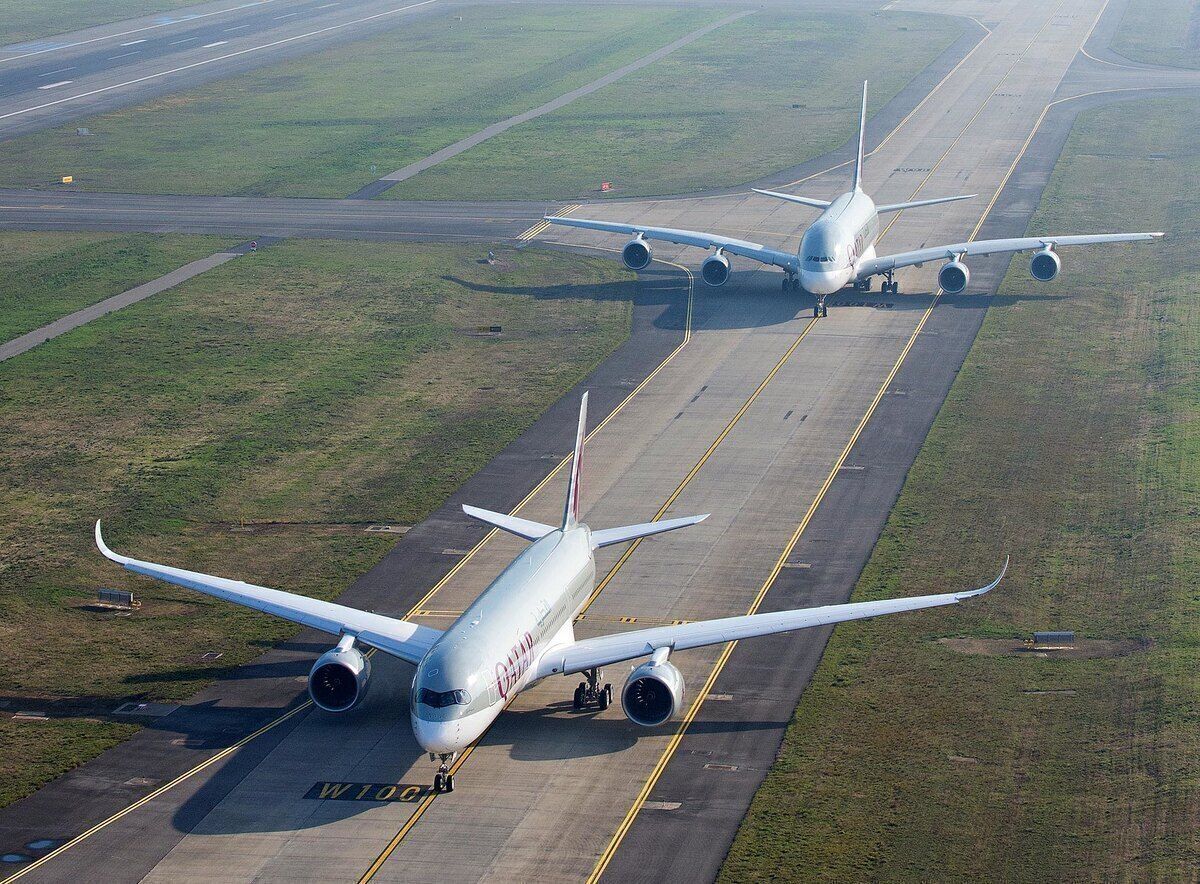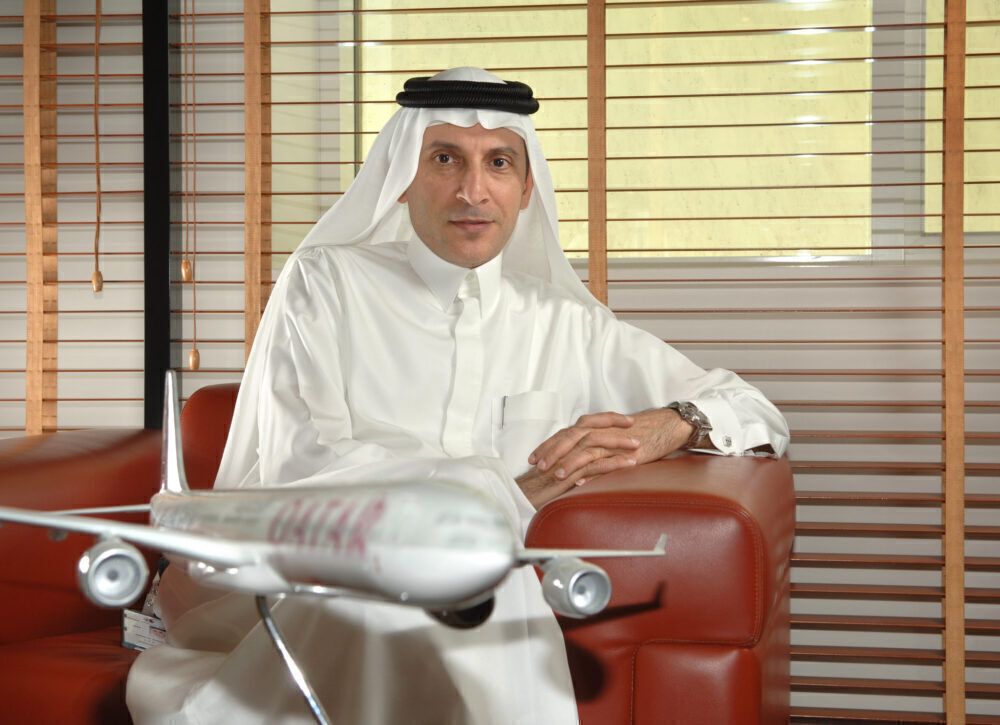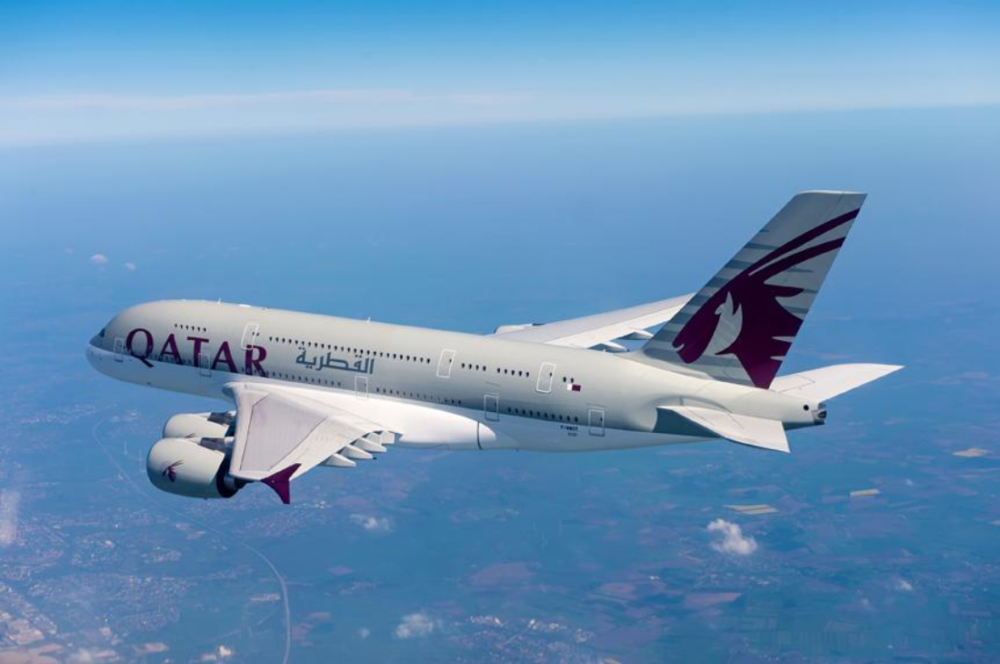Qatar Airways CEO Akbar Al Baker made a splash this week, saying he thought buying the Airbus A380s was the airline's biggest mistake. It is a rare admission from an airline CEO who rarely backs down. Qatar Airways has a fleet of 10 Airbus A380s. All are presently inactive. Al Baker's view on the plane doesn't bode well for their future.
"It was good when it had launched in 2002," Akbar Al Baker told Simple Flying in an exclusive webinar interview this week. But with rising fuel prices and growing awareness about the environmental impact of flying, the mega jumbo is no longer a good match for the times.
With demand for international travel at historical lows, the A380s unsuitability is more pronounced than ever.
"What is the point of deploying seats when you only have a 10% load factor in a large aeroplane? Al Baker rhetorically asked in reference to the A380.
Stay informed: Sign up for our daily and weekly aviation news digests.
Qatar Airways CEO says it hurts to keep flying the A380s
The Qatar Airways CEO revealed earlier this year that half the airline's A380 would not fly again. But at the time, he didn't rule out the remaining five A380s winging their way around the world again. However, in April, Al Baker gave a strong hint about Qatar's future strategy and where the A380 fitted into it.
“There is no future for the A380. It was the wrong aeroplane at the wrong time ... for the operator, it’s really painful to keep them in the skies.” he told Sam Chui.
Akbar Al Baker hammered home that message this week speaking to Simple Flying's Joanna Bailey. While the CEO hasn't officially confirmed the end of the A380 at Qatar Airways, its flying future at Doha is looking less likely by the week.
Two key factors work against the A380's ongoing viability
According to Al Baker, operators of the A380 face two key problems. The plane is very expensive to operate, and its emissions are high. Admitting many passengers were fans of the plane, he said there were bigger picture priorities.
"The damage it does to the environment should be the priority, not the comfort."
Depending on weight, fuel price, and flying conditions, it is estimated to cost between US$26,000 and $29,000 per hour to fly an A380. Say it takes 14 hours to fly between Doha and Seattle. Splitting the estimated cost down the middle, the operating cost of that flight, if using an A380, would be in the vicinity of $385,000. The operating costs of the Boeing 777-200ER Qatar Airways currently used on that route are less than half that amount.
And there are more efficient aircraft available to Al Baker than Boeing 777-200s. The CEO is a big fan of Boeing's Dreamliners and the Airbus A350. Alongside the long-awaited and much delayed Boeing 777X, these three aircraft types will form the backbone of Qatar Airways' long-haul fleet for the foreseeable future.
In addition to saving money, these three planes tick the boxes when it comes to minimizing the environmental impact of flying. Qatar Airways is committed to net-zero emissions by 2050.
"We will continue to invest in aeroplanes, that have lower emissions and aeroplanes that are environmentally free," Al Baker said this week.
"We will continuously invest for the future generation in order that we keep on reducing our carbon emissions, our emissions from our engines."
The A380, with its significant carbon footprint, does not fit into this strategy at Qatar Airways. According to Akbar Al Baker, the A380 is unsustainable from an economic and environmental viewpoint. While those last five A380s are still hanging in there at Qatar Airways, it seems inevitable the airline's CEO will soon pension them off for good.



